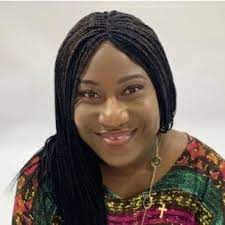Speakers at the third edition of the Amplify In-depth Media (AIM) Conference and Awards, organized by the Wole Soyinka Centre for Investigative Journalism, have urged journalists and the news media to embrace ethics, innovation, and sustainability in their reporting.
The two-day event, held in Abuja on December 8 and 9 2023, brought together industry leaders, media practitioners, and experts to discuss the challenges and opportunities facing journalism in the age of artificial intelligence and digital transformation.
Dapo Olorunyomi, Publisher of Premium Times and founder of the Centre for Journalism Innovation and Development (CJID), while delivering his keynote address titled “From attention to intimacy: Journalism in the age of artificial intelligence,” stressed the importance of upholding democratic traditions and fundamental ethics of truth, accuracy, and verification, even in the face of technological innovations.
Speaking at the conference, Amina Salihu, acting deputy director of the MacArthur Foundation, and Dina Sabi, the second secretary of the Netherlands Embassy in Nigeria, commended the organizers for their commitment to fostering democracy through their work in the media space. Salihu acknowledged the symbiotic relationship between journalists and civil societies, emphasizing the role of journalists in ensuring accountability and transparency across all levels of governance. Sabi underscored the media’s responsibility to empower society through access to accurate and timely information.
In a panel discussion moderated by Kimberly Nwachukwu, a senior reporter with Nigeria Info, on the keynote address, Deji Adekunle, programme director of Nigeria Media Innovation Programme (NAMIP), and Naziru Abubakar, executive director/editor-in-chief of Daily Trust newspapers, called for introspection within the media industry, urging journalists and organizations to strengthen their financial stability and independence.
In another conversation on “Media regulation and independence: Where is the balance?” moderated by Sharon Ijasan, Senior Correspondent at TVC News, panelists discussed how the media have been suppressed through regulations and insisted on objective reporting.
Moderated by Emiene Odaudu of Allwomen Media, the session, “Ownership structure and media independence”, featured Ahaziah Suleiman of Voice of Nigeria; Oluchi Anams of AD4TVRadio; Yusuf Alli of The Nation and Victoria Bamas of International Centre for Investigative Reporting (ICIR). Alli admonished young journalists to be confident in ownership and control of their work. He urged them to be courageous and to hold authorities accountable.
During the session on “Ethical considerations in journalism”, moderated by Azubuike Ishiekwene, panelists reminded journalists that we are in the digital age and therefore urged them to verify information before publishing. The session on “Innovative tools and strategies for independent journalism in the digital age” encouraged the adoption of digital tools to improve the quality of journalism.
Dapo Olorunyomi, during a workshop on “Entrepreneurial Journalism,” emphasized the importance of news organizations following technological trends to meet the demands of sustainability.
During a session titled “Donor Funding for Investigative Journalism: How Does Investigative Journalism Sustain Itself Beyond Intervention?” moderated by Motunrayo Alaka, the panelists, including Amina Salihu, Dayo Aiyetan, Executive Director, ICIR, and Toyin Akinniyi, Vice President, Luminate Foundation, recommended that media organizations consider exploring alternative funding sources for their investigative reports.






